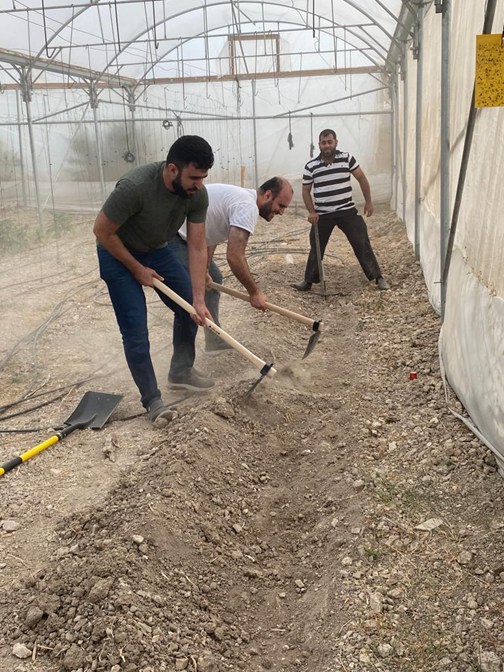
Lessons I Learned from My IIE Centennial Fellowship
By Abdelhaleem Khader, 2021-2022 IIE Rodman Rockefeller Centennial Fellow
The first lesson that I learned from my fellowship is how to choose the right project. Personally, this was not the first time I applied for the IIE Centennial Fellowship. In the previous attempts, I was focusing on “trendy” subjects that I predicted to have higher chance of acceptance. But when I applied for the 2021-2022 project, I focused on causes that I deeply care about and can benefit both my local community and the global environment. And so, the main objective of my project was to promote sustainable farming in marginalized communities in rural areas of the West Bank, in order to protect the environment, preserve natural resources, and support local farmers.
The second lesson that I learned is that I had to do my best in preparation. Although choosing the right project was an important step, it was not a guarantee of success. I had to do my homework and collect the needed data and information and carefully plan every step of the project. In addition, I had to prepare contingency plans just in case the implementation of the steps was interrupted with unexpected circumstances.
The third lesson that I learned is that my project should be centered on my local community. Not only were my sustainable farming efforts targeting local farmers from my own village, but also the model farm was built by experts and skilled workers from the village. From the blacksmith who constructed the frame, to the plumber who set up the rainwater harvesting and the irrigation systems, to the young engineer who set up the solar panels for electricity generation, all are from the local community and all are part of the support network that I am planning to create for the sustainability of the project.
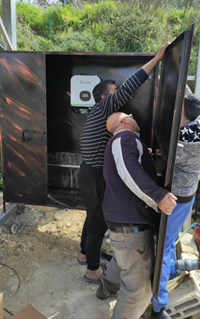
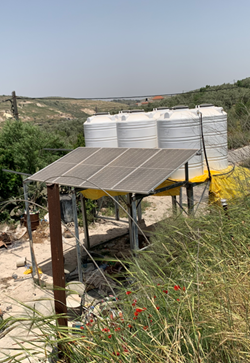
Local skilled workers installing the PV electrical system
The fourth lesson that I learned is combining the state-of-the-art technology with wisdom of local farmers. Although the model farm is equipped with modern electrical and irrigation systems, it was necessary to integrate some of traditions in farming inherited by local farmers. For instance, local farmers knew for generations that certain crops do better with their “companion” crops. Based on this we included a session on co-planting as a practice that enhance sustainability.
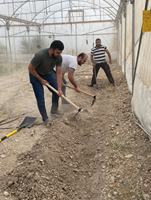
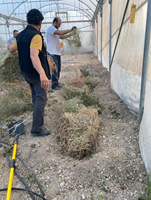
Part of the hands-on training on constructing the raised beds (a sustainable farming practice)
The fifth lesson that I learned is focusing more on people. Although the technology is important for the success of the project, this technology should be centered on the people’s needs and expectations. For example, some farmers cannot dedicate full time to their farms such as parents who take care of young children. To solve this issue, we dedicated a session in the training to smart irrigation technique which allows the farmer to control the irrigation system from any internet connected device, even it can fully automate it based on data from sensors in the soil. The session was led by the founder of a startup that make and install these systems, who is my former student and part of the community as well.
Throughout the training sessions, we have built a small community of farmers who believe in sustainable farming. We hope to maintain this group and help it grow by successfully running the model farm that will provide high quality organic produce using sustainable farming practices to the local community. In addition, the farm will always be open to the local community as a living example and one-on-one training.
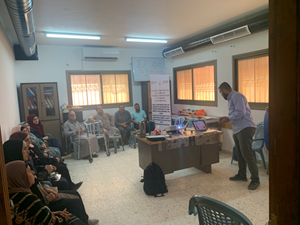
Part of the training for local farmers